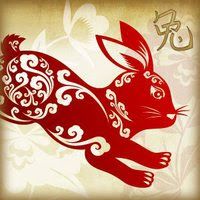A Short History of Myth might be the sequel to A Brief History of Time (and infinitely more readable, I might add). One brings us from the first moment of the universe forward. The other brings us from the first conscious human moment forward.
Allow me to state a personal belief here: both journeys are awesome. Equally awesome. Karen Armstrong believes that reading about myth without experiencing (even at an historic distance) the accompanying ritual gives "as incomplete an experience as simply reading the lyrics of an opera without the music." I don't agree. If the reader participates, imaginatively, in the act of storytelling, then the ancients who transformed their questions and awe into stories are as modern as we are - which is to say, a few thousand years of time have not changed human psychology one whit.
What are the domino theory, the red menace, the Cold War, and the information superhighway but modern myths, meant to tame our fears, awe, and perceived helplessness against overwhelming power? And what are the arms race, HUAC hearings, wars, and the creation of pc icons but rituals to propitiate that power?
Armstrong says that the presence of myth posits a belief in a future similar to our own - a means to allay the consciousness of mortality and its despair. "Myth," she says, "looks into the heart of a great silence." Myth and religion also explain (or bring us to) transcendent moments when logic quiets, and experience narrows and expands. (I would call them Zen moments, the ultimate detachment of one's personal ego from the cosmos, both the ultimate surrender and relief.)
This parallel universe is one where the gods and goddesses have dealt - as badly, at times, and as egotistically - with the same problems of mortals. Jealousy, greed, ambition, and arrogance damage the gods as much as they do humans. Every culture has believed in a lost paradise and a powerful, single god whose remoteness has spawned lesser deities or landscapes where the two worlds are linked. Both the Australian Dreamtimes and the Elusinian Mysteries, for example, provide links between the worlds, as do the Burning Bush or Jacob's Ladder.
Myths transform and symbolize the seasons and agriculture (Persephone and Demeter), rites of passage, humanity's punishment for arrogance or attempting to transcend the natural order (Icarus, Prometheus), and disrespect for the Mother (Ianna), who forever retains her fearful power over reproduction and the food supply, and who must be propitiated. Agriculture and death intertwine (Osiris, Persephone's stay in the Underworld), heroic quests are undertaken (the search for the Grail).
Are any of these stories outdated? Of course not. Therein lies the power of myth - as metaphor of the original story, the Jungian idea of collective consciousness, the Christian concept of original sin, the folly of those who worship wealth (the Golden Calf), the quest for the fire that might illuminate our path away from death. We always will have Mysteries, Eleusinian or not.
This is a mighty little book that combines a concise overview of myth with an invitation to discover the very modern ancients. I recommend it for its information, style, and the provocative questions it invokes.
8.28.2008
Subscribe to:
Post Comments (Atom)


No comments:
Post a Comment